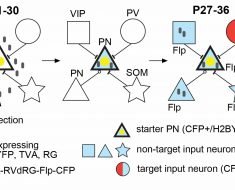Non-alcoholic fatty liver disease (NAFLD) is a very common disease, and with the incidence of liver cancer rising across the country, little has been understood about the link between NAFLD and a form of liver cancer called hepatocellular carcinoma (HCC). To establish a better understanding of the link between HCC risk and NAFLD, researchers at Baylor College of Medicine conducted a large, retrospective study of patients with and without NAFLD. The results appear in Gastroenterology.
In this study, the research team looked at a diverse cohort of patients from 130 facilities in the Veterans Health Administration and followed them for roughly 11 years. The study included 296,707 patients who were known to have NAFLD and 296,707 patients without NAFLD. Of the patients with NAFLD, 490 developed HCC. The risk of developing HCC was much higher in patients with than those without NAFLD.
“Most importantly, we found that the risk for hepatocellular carcinoma is significantly higher in those patients with NAFLD, and this is the first large, diverse cohort study to quantify that risk,” said Dr. Fasiha Kanwal, professor and section chief of medicine-gastroenterology, investigator at the Veterans Affairs Health Services Research and Development Center for Innovations (CoIN), member of the Dan L Duncan Comprehensive Cancer Center at Baylor and first author on the paper. “Although, the absolute risk for HCC in NAFLD patients is low, it is still higher than the accepted threshold for HCC screening in the subset with established cirrhosis of the liver.”
Kanwal and colleagues found that patients with NAFLD canadianpharmtabs.com who had developed cirrhosis of the liver had the highest incidence annually of HCC, that the risk for HCC increased with age, and that older Hispanics with cirrhosis were at the highest risk for HCC.
“This study provides valuable and robust information about who among the millions of people with NAFLD are at risk of developing HCC. The information is a significant step forward in our understanding of the disease, and will be of use to researchers, clinicians and patients,” said Dr. Hashem El-Serag, professor of medicine-gastroenterology at Baylor and senior author on the paper.
Source: Read Full Article





